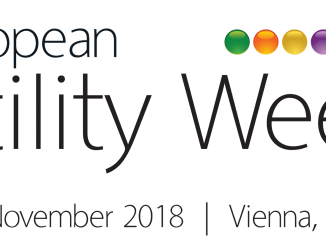
The energy transition is a disruptive evolution everyone sees clearly today. Its technological, business, economic and regulatory aspects are often debated and commented.
But what about the human aspects and, more particularly, would it not have an impact on the skills needs by energy companies?
To celebrate the 3 years of weekly publications in my blog, now counting 10,000 subscribers, whom I sincerely thank for their loyalty, I would like to share with you, some thoughts that are particularly close to my heart.
First, the energy sector is not an exception: in recent decades, companies, especially the largest, have failed to optimize the transmission of skills between generations; sometimes, the staff reduction plans targeting firstly the oldest generation have even accentuated the phenomenon. I am always surprised to see, during my assignments, in project teams, the greed of younger generations to enjoy some kind of mentorship.
Second, many energy suppliers have seen the opening of markets as a major threat: in response, they hired skills from sectors that have already faced major market disruptions (telecoms, banks) to benefit their experience, to import proven methods and to initiate a cultural change to succeed in this new “competitive” environment.
However, there is a major difference between the energy business and other sectors: the dependence of all actions and solutions deployed, on the energy systems and their operation and therefore on the technologies and energy management processes.
This difference sometimes has a moderate impact. Selling gas or electricity per kWh to residential customers is an activity that is not very dependent on energy systems: skills from elsewhere have also brought in this area a new breath and a dynamic unknown until then.
But is selling fluids per kWh a model for the future? Does the energy transition not allow for a more active positioning of consumers? are they not at the forefront of energy efficiency and changing uses? Should not energy suppliers be accompanied and positioned as their favorite partner? Should they not help consumers to build their own nano-grid, to evolve their thermal systems … in short, to include them in a global energy system? All these activities can only be profitably developed with a good knowledge of the markets and energy systems of today and tomorrow.
If the stakes of residential customers remain “simple”, even when it is the collective residential, it is not the same for B2B customers or for local authorities.
These large consumers need to build a “path” to develop local power or thermal generation and ossibly, to share it with neighboring sites, to optimize their purchase of electricity, gas, heat and services, to save energy, to reduce their energy losses, to enhance and value their flexibility, to optimize physically and economically all their energy flows. With them, we are entering a world that requires a perfect understanding of all the components of the energy world.
In addition to these challenges, the cities need to influence a complex chain of actors including successively urban planners and designers, developers, architects and construction companies, as well as the ability to architect global energy solutions that go far beyond a simple gathering of existing solutions.
To meet these challenges, many teams need to strengthen their skills at energy utilities and energy service providers.
To design solutions for B2B customers or for cities, engineering companies must integrate multi-skilled engineers because their teams now have to develop integrated and supervised multi-fluid solutions, in which the supervision and the control systems must be interfaced with more global supervisory systems. In electrical distribution companies, electrical engineering must no longer the only dominant skill to demonstrate, digital technologies and other energy technologies are not part of the cluster of techniques to master.
What can be easily understood in technical environments also applies to more commercial sectors.
Sales and marketing teams dedicated to the B2B, cities and collective residential segments must now have a strong global understanding of the business and energy systems and their operation and technologies. The relevance of offers and commercial actions is immediately improved.
Today, I see a difficult dialogue between the different departments of a utility: the necessary common cultural envelope, strongly influenced and shaped by technology, does not exist. It is the same between an energy company and potential external partners.
How to expect sellers or marketers to ask the right questions and establish intimacy with customers if the necessary knowledge and understanding for a useful and focused dialogue are lacking?
These difficulties are often solved within a project team, focused on a particular subject; the necessary technical understanding can be developed over time. But outside projects, and whenever a vision or a more global approach is essential, I can only deplore the lack of useful skills.
I am surprised to see that the diagnosis is rarely done correctly: for example, when facing a lack of performance of the salespeople, the answer is the organization of a training in sales techniques whereas the need is to train the sales people to the energy systems, their operation and their evolution due to the energy transition, to enable them to lead their customers in a winning way through the present disruptions.
Ultimate sign of this situation, perhaps the most impacting one, the business strategies of energy companies are generally very poor: it is not possible to develop any quality approach without immersing yourself in the energy world. The largest energy companies are developing successful global strategies for building or evolving their portfolio of activities and assets, but all are struggling to define their more operational strategy for developing each of their activities.
For me, in many cases, a “technical” review of strategic directions, commercial and marketing as well as some cross-project directors should be a priority.
This lack of “technical” skills and overall understanding is probably the main Achilles’ tendon of most energy companies. I understand that the message is difficult to receive because who is better placed than an energy specialist to understand the energy world? No one.
I understand that the leaders of energy companies have difficulties to consider such a situation because it gives the feeling to question the fair, and however legitimate, trust that these leaders have in their teams.
I understand that such a diagnosis refers to the ability to manage uncertainty and deal with deep market disruptions. For that, leadership such as the one I was describing recently is a valuable asset.
The energy company or the utility that will bring a relevant response to the statement I just shared with you, will necessarily have a significant advantage on the others.
Receive every quarter all posts of the blog: [sibwp_form id=2]




Leave a Reply